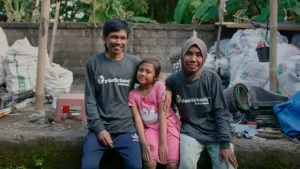Plastic Bank’s partner companies help fund informal waste collection efforts in one or more of the countries where it operates. Some of Plastic Bank’s partners then buy the recycled material at a premium for use in their new products. The plastic collectors are paid for the market value of the material, plus a premium that Plastic Bank provides, allowing some of the world’s poorest to support themselves through plastic collection alone. RePurpose’s partners generate credits by funding plastic recovery and recycling projects largely in the developing world. While Plastic Bank works solely with informal waste workers, RePurpose works with a variety of in-country partners to address gaps in local waste management infrastructure. RePurpose also helps brands identify how they can reduce their use of new plastic or use alternative packaging materials, but unlike Plastic Bank it doesn’t sell recycled plastic. RePurpose wouldn’t reveal its revenue, but said its upward of $1 million and growing quickly.
Source: https://www.cnbc.com/2023/04/06/plastic-pollution-credits-could-be-the-new-carbon-offsets.html

